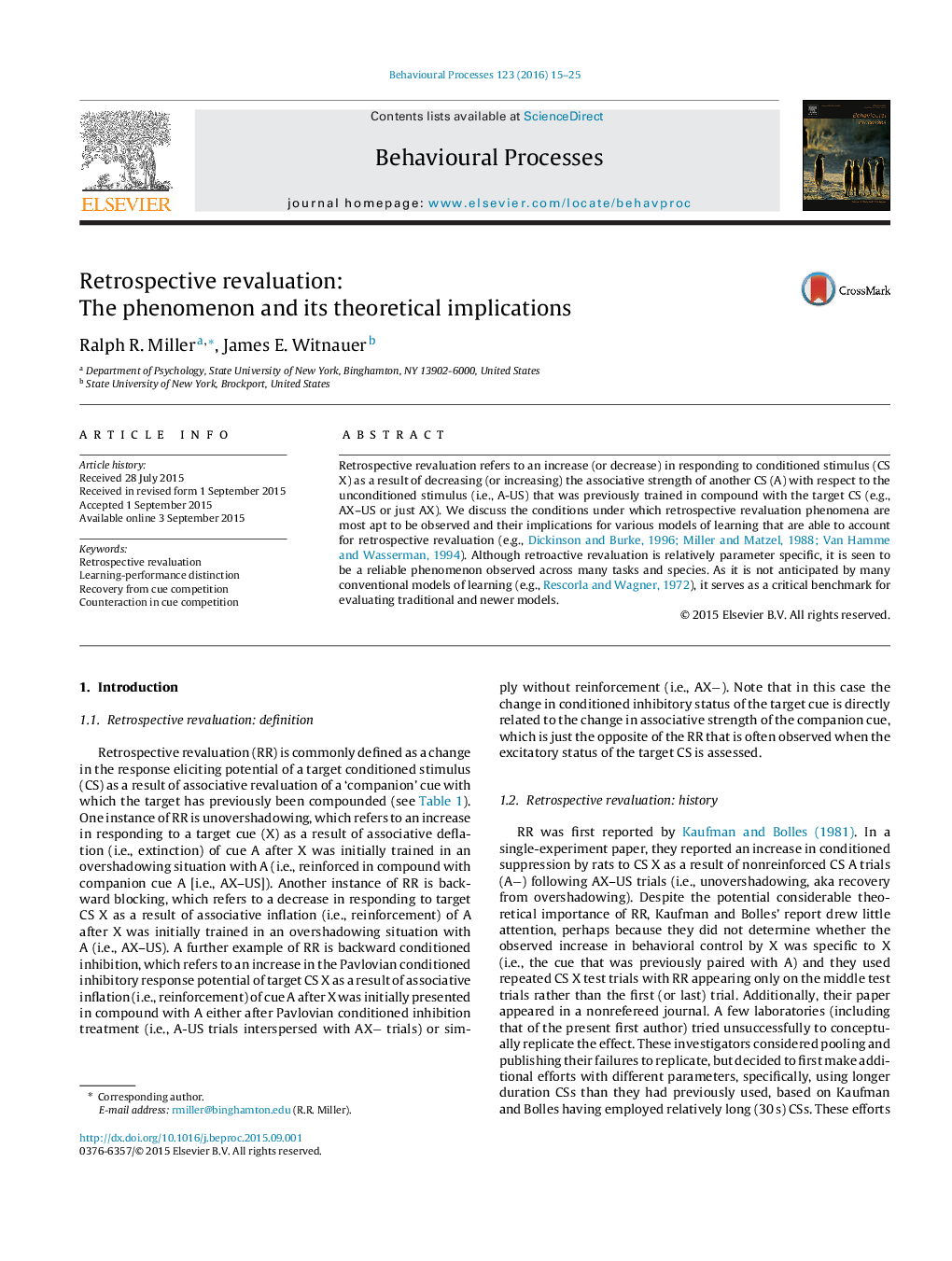| کد مقاله | کد نشریه | سال انتشار | مقاله انگلیسی | نسخه تمام متن |
|---|---|---|---|---|
| 2426414 | 1553157 | 2016 | 11 صفحه PDF | دانلود رایگان |
• Retrospective revaluation treatment changes the response potential of an absent cue.
• Treatments involve changes in the associative status of companion cues.
• Retrospective revaluation challenges most models of associative learning.
• Several recently proposed models of learning anticipate basic retrospective revaluation.
• All models are challenged by at least some aspects of retrospective revaluation.
Retrospective revaluation refers to an increase (or decrease) in responding to conditioned stimulus (CS X) as a result of decreasing (or increasing) the associative strength of another CS (A) with respect to the unconditioned stimulus (i.e., A-US) that was previously trained in compound with the target CS (e.g., AX–US or just AX). We discuss the conditions under which retrospective revaluation phenomena are most apt to be observed and their implications for various models of learning that are able to account for retrospective revaluation (e.g., Dickinson and Burke, 1996, Miller and Matzel, 1988 and Van Hamme and Wasserman, 1994). Although retroactive revaluation is relatively parameter specific, it is seen to be a reliable phenomenon observed across many tasks and species. As it is not anticipated by many conventional models of learning (e.g., Rescorla and Wagner, 1972), it serves as a critical benchmark for evaluating traditional and newer models.
Journal: Behavioural Processes - Volume 123, February 2016, Pages 15–25
